#learning styles
Text
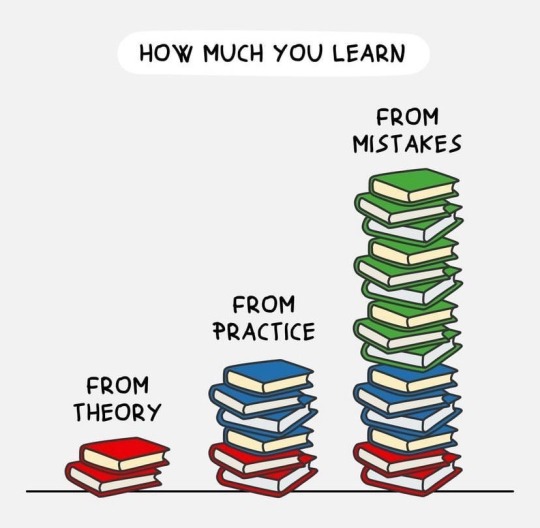
#english in madrid#english#english language#learning languages#learning english#english as a second language#english as a foreign language#english words#motivation#inspiration#positivity#positive thinking#learning styles
1K notes
·
View notes
Text
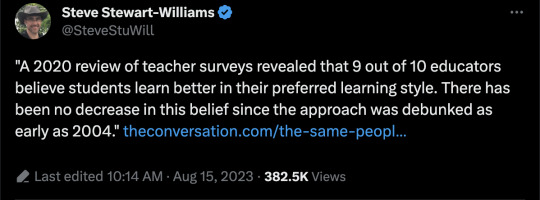
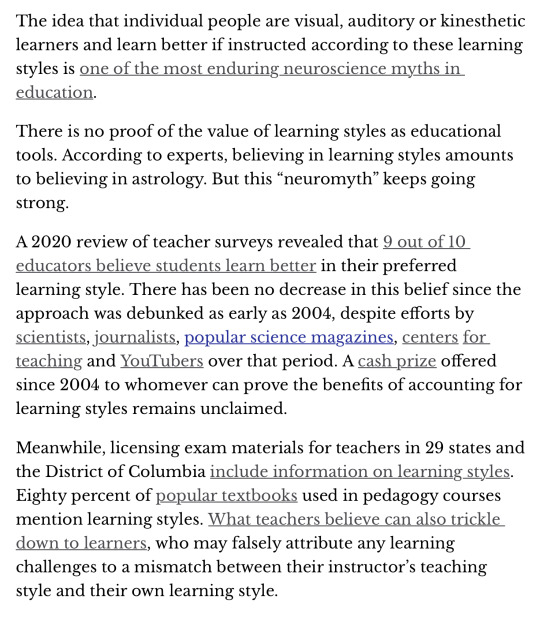
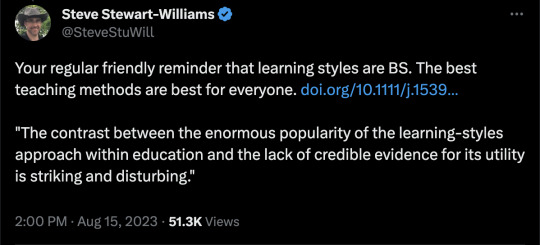
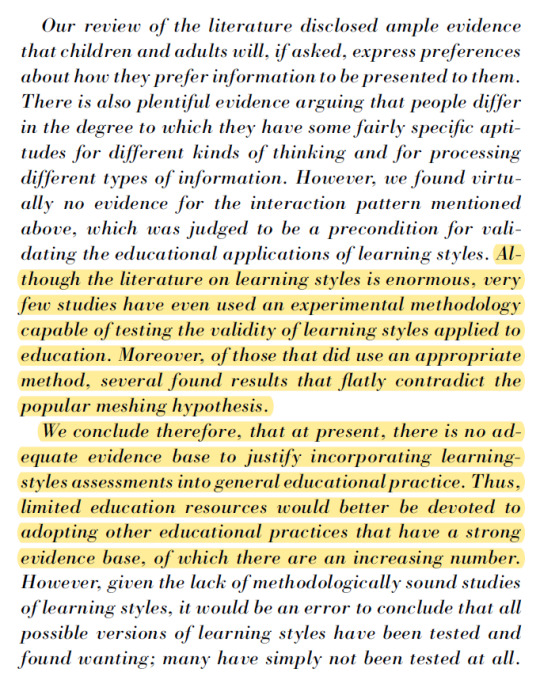
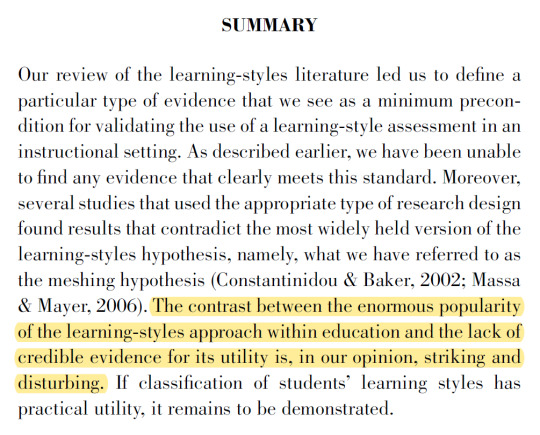
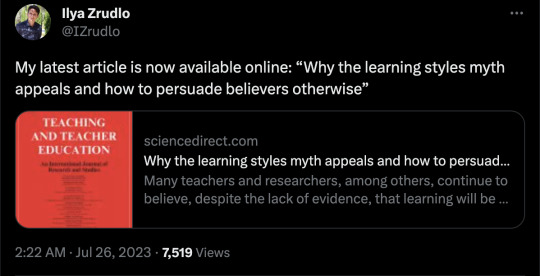
Abstract
Many teachers and researchers, among others, continue to believe, despite the lack of evidence, that learning will be more effective if educators match their teaching approaches to students’ alleged learning styles. Scholars have called for more research on why the belief in learning styles is so appealing. This conceptual paper suggests four moral intuitions or sensibilities that underlie the appeal: (1) the desire for rational control, (2) our sense of justice, (3) the feeling that everyone is unique, and (4) reverence for the natural. Speaking to these intuitions could strengthen efforts to debunk the myth of learning styles in teacher education.
[..]
Experts aren’t sure how the concept spread, but it might have had something to do with the self-esteem movement of the late ‘80s and early ‘90s. Everyone was special—so everyone must have a special learning style, too. Teachers told students about it in grade school. “Teachers like to think that they can reach every student, even struggling students, just by tailoring their instruction to match each student’s preferred learning format,” said Central Michigan University’s Abby Knoll, a PhD student who has studied learning styles. (Students, meanwhile, like to blame their scholastic failures on their teacher’s failure to align their teaching style with their learning style.)
Either way, “by the time we get students at college,” said the Indiana University professor Polly Husmann, “they’ve already been told ‘You’re a visual learner.’” Or aural, or what have you.
The thing is, they’re not. Or at least, a lot of evidence suggests that people aren’t really one certain kind of learner or another. In a study published last month in the journal Anatomical Sciences Education, Husmann and her colleagues had hundreds of students take the Vark questionnaire to determine what kind of learner they supposedly were. The survey then gave them some study strategies that seem like they would correlate with that learning style. Husmann found that not only did students not study in ways that seemed to reflect their learning style, those who did tailor their studying to suit their style didn’t do any better on their tests.
Husmann thinks the students had fallen into certain study habits, which, once formed, were too hard to break. Students seemed to be interested in their learning styles, but not enough to actually change their studying behavior based on them. And even if they had, it wouldn’t have mattered.
“I think as a purely reflective exercise, just to get you thinking about your study habits, [Vark] might have a benefit,” Husmann said. “But the way we’ve been categorizing these learning styles doesn’t seem to hold up.”
Another study published last year in the British Journal of Psychology found that students who preferred learning visually thought they would remember pictures better, and those who preferred learning verbally thought they’d remember words better. But those preferences had no correlation to which they actually remembered better later on—words or pictures. Essentially, all the “learning style” meant, in this case, was that the subjects liked words or pictures better, not that words or pictures worked better for their memories.
In other words, “there’s evidence that people do try to treat tasks in accordance with what they believe to be their learning style, but it doesn’t help them,” says Daniel Willingham, a psychologist at the University of Virginia. In 2015, he reviewed the literature on learning styles and concluded that “learning styles theories have not panned out.”
That same year, a Journal of Educational Psychology paper found no relationship between the study subjects’ learning-style preference (visual or auditory) and their performance on reading- or listening-comprehension tests. Instead, the visual learners performed best on all kinds of tests. Therefore, the authors concluded, teachers should stop trying to gear some lessons toward “auditory learners.” “Educators may actually be doing a disservice to auditory learners by continually accommodating their auditory learning style,” they wrote, “rather than focusing on strengthening their visual word skills.”
In our conversation, Willingham brought up another study, published in 2009, in which people who said they liked to think visually or verbally really did try to think that way: Self-proclaimed visualizers tried to create an image, and self-proclaimed verbalizers tried to form words. But, there was a rub, he said: “If you’re a visualizer and I give you pictures, you don’t remember pictures any better than anyone who says they’re verbalizer.”
This doesn’t mean everyone is equally good at every skill, of course. Really, Willingham says, people have different abilities, not styles. Some people read better than others; some people hear worse than others. But most of the tasks we encounter are only really suited to one type of learning. You can’t visualize a perfect French accent, for example.
==
Considering the sources of teacher training, Ed Schools, are extremely highly ideological, the perpetuation of this "neuromyth" is probably not an accident or misunderstanding.
These are the schools that have attached quasi-religious overtones to their preferred, but ineffective, process of teaching kids to read, and have been denying evidence-based methods for decades.
#learning styles#pseudoscience#education#corruption of education#neuroscience#myths#science#VARK#visual learner#auditory learner#reading learner#kinesthetic learner#junk science#religion is a mental illness
78 notes
·
View notes
Text
I can't stress this enough. Not everyone has the capacity to study for long periods with no other stimuli. People always say that doing two things at once is bad for productivity, but as someone who has never experienced what it is like to have a "normal" brain, I can't focus without multiple stimuli.
I need people to remember that everyone has different needs. Telling people that they are studying wrong is rude, and there is no way that you know whether that works or not because you aren't the same person. If people find something that works for them, support them, and don't tell them they are wrong. All you are gonna do is make them think that they aren't allowed to adjust things to fit them. You are causing more harm than good.
#studyblr#study motivation#graduate student#business student#studying#learning#people learn differently#learning styles#studyspo#study#study however works for you#you are capable#do what works for you
26 notes
·
View notes
Text
Hi friends!!
Some of you may know I’m a psychology major, and currently I’m doing a study on how noise sensitivity and learning styles may or may not predict academic performance in undergraduate college students! This is to fulfill some requirements to earn my degree, and in order for this study to be successful, I need at least 107 participants. If any of you who are undergraduate college students are interested in participating, all it is is taking a survey to assess your noise sensitivity level, learning style, and academic performance level. No personal information is collected, there is an option to have your email recorded if you want to be entered in a drawing for 1 of 4 $25 Amazon gift cards as a thank you for participating, but this is by no means required :)
I would really appreciate it if any of you would consider taking the survey, and I will post the link to it in a few weeks when I have IRB approval to launch the study! This is completely voluntary participation and please do not feel obligated to participate, only if you want to!
#psychology#psychology major#behavioral sciences#research#psychology research#behavioral sciences research#noise sensitivity#noise sensitivity research#learning styles#learning styles research#academic performance#academic performance research#undergraduate college students#undergraduate research
23 notes
·
View notes
Text
SOMEONE SAVE ME FROM THE LEARNING STYLES ASSESSMENT PLEASE I WANNA DIE JUST LOOKING AT IT PLEASEEEEEEEEEEE
7 notes
·
View notes
Text
*according to aphantasia.org aphantasia is "is the inability to visualize. Otherwise known as image-free thinking." the same source defines hypophantasia as "low visual imagination" meaning persons may "experience flashes or struggle to create mental images" and such persons "have described experiences almost like aphantasia". below is an image from the same source to help put things into perspective

**primarily meaning which learning style you feel most aligns with your learning methods even though you may actually use more than one. click here to learn more about the three learning styles. and click here or here to take a free online quiz to determine your learning style. if you don't have a primary learning style then you can maybe choose which is your favourite to use or which one you use most.
7 notes
·
View notes
Note
Hello!! So I have a question about adhd and reading. I've found that I can easily sit down a read a fiction book with no problem. However, I struggle to read nonfiction, even if the content is relatively interesting. My guess is that because I think in mostly images, it takes more effort to read something that doesn't allow my brain to form any visuals. Is this just me, or do most people with adhd think in pictures as well?
Sent January 11, 2023
The idea of "thinking in pictures" tends to be more associated with autism, thanks to Temple Grandin, but it seems to be more related to how we learn. Visual learners tend to be visual thinkers (which makes a lot of sense).
A lot of ADHDers tend more toward being kinaesthetic learners, which is learning by doing. Nobody learns through just one style, but we all have one that's more effective than the others.
Followers, are you visual thinkers? How do you learn best? How do you think this affects your reading?
-J
27 notes
·
View notes
Text
I can't really bring myself to open the Mandarin textbook and study and learn the boring basic word in boring basic sentences.
I find I'd rather try and decipher the characters on a wall of rules in archaic language shown for a few seconds in the tv series The Untamed, or what one of the series characters mutter in a tense moment.
Or read some 1000-year-old poem, which will perhaps not have a lot to do with modern language usage.
I realise I like to be the one doing the chasing in learning and a want the subject of learning to be a bit mysterious and coy and alluring.
#watching the untamed#the untamed#language learning#learning mandarin#chinese language#learning styles
18 notes
·
View notes
Text
What worked for Me: Auditory Learner
Well, first of all, I recommend playing MY playlists! I jest, but I have left them at the bottom for you, if you're interested. I'd appreciate it x
I’m sure you’ve heard the classical music suggestions, I’m sure we all stan a lo-fi study girl, but I actually found lyrics really useful when I was finding it hard to concentrate, so long as I knew the song. For me, I always have a million things in my head distracting me from my tasks, but a song I know let’s me narrow it down to the task in front of me and singing along to the song.
What I did a lot was pick a musical soundtrack (usually Heathers) and pick one song that I was allowed to belt to as a break from work.
Alternatives:
Classics from your childhood
Your favourite album that you’ve listened to 600 times (ideally, one with no skips). Again, pick a song or two that you can break to
Disney soundtracks- pick your favourite princess (and/or Villain!) and study to Shiny and sing along to Just Around the Riverbend, or whatever the case may be. Considering the sheer number of BOPS, I might consider a second princess reasonable.
Songs not in your native language or target language- eg, I have no particular intention of learning Korean so blasting BlackPink is pretty safe for me. I speak spanish, so I’m not going to be distracted by learning Bailando by Enrique Iglesias. However, my main target language is Polish, so a Polish song would absolutely distract me. *UNLESS it’s that language that you’re studying, in which case there could be benefits eg French test coming up? It’s La Vie en Rose time, baby!
A film you’ve seen too many times. You can fully just put 27 Dresses on in the background and have a little stretchy when she’s trying on said 27 Dresses; or you can study to The Devil Wears Prada and take a break to quote along to Miranda’s “this… Stuff” monologue (aka one of the most iconic moments in cinema).
youtube
youtube
25 notes
·
View notes
Photo

Once you find out what type of learner you are, you can start using relevant strategies to help yourself learn better and faster
(via What type of learner are you? (infographic))
11 notes
·
View notes
Text
““We don’t make it anymore!” This is the price we have paid for removing most hands-on classes from our schools, such as shop, welding, drafting, and auto mechanics. The kids who should have grown up to invent this equipment are often considered poor performers, academically or behaviorally, and are shunted into special education. But many of them are simply visual thinkers who are being screened out because the current curriculum favors verbal, linear thinkers who are good at taking tests. The hands-on classes where some of these “poor students” might have shown great ability are now gone.”
— Visual Thinking: The Hidden Gifts of People Who Think in Pictures, Patterns, and Abstractions by Temple Grandin
2 notes
·
View notes
Text
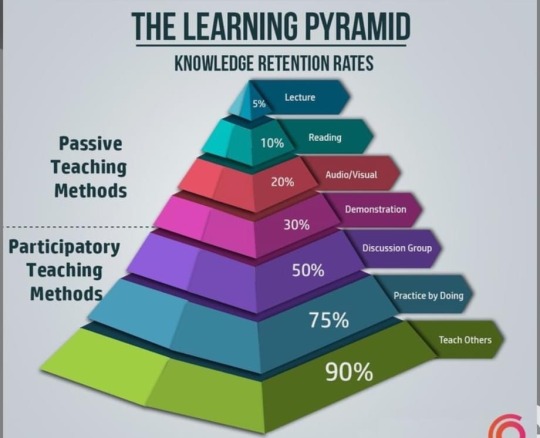
#english in madrid#english#english language#learning languages#learning english#english as a second language#english as a foreign language#english words#learning styles
16 notes
·
View notes
Text
Thinking of someone

#papyrus#undertale#papyrus undertale#digital sketch#expressions#learning styles#papyrus underswap#skulls#bonehead#he wouldnt appreciate being called that#he kinda cute tho#i just wanted to draw them
14 notes
·
View notes
Text
Studying grammar and punctuation is a wild ride...and a constant reminder of my neurodivergence
I’m currently enrolled in an online medical writing and editing class. This is an amazing opportunity to learn more about the field I’m entering, get to know people in my profession, and of course, build my writing and editing skills. This week, we are studying the mechanics of English: grammar, punctuation, and capitalization.
The experience is stirring up a lot of feelings.
I have a strange relationship with grammar.
As a child, I internalized the rules of my native language as if I were born to learn it, just by reading voraciously and listening to my parents. (They generally spoke grammatically, being highly educated and taught grammar in school).
It turned out that I excel at learning by non-deliberately absorbing the information around me. I have an ear for vocabulary, phrasing, and the rhythms of speech. Every time I watch a Shakespeare or Jane Austen adaptation, I think and speak in the characters’ style for a while afterwards.
By the time I was ten, I had absorbed enough rules of English to talk like I’d swallowed a textbook. I earned near-perfect scores on the English sections of the SAT and GRE with virtually no studying.
Everyone concluded that I’m good at English grammar. So, one would think that I would take naturally to it when formally taught.
The exact opposite happened.
Every so often, one of my parents would explain a rule of mechanics. If they simply talked about meanings in everyday language (”your means this, you’re means that”), I understood and adopted the rule. But grammatical jargon made my metaphorical eyes glaze over. I couldn’t remember the definitions or the rules, probably because I couldn’t see the connection to the meanings I was trying to express.
Needless to say, conversations with my father about editing my essays were...interesting. I can hear the difference between sentences with better and worse style, but have much more difficulty explaining why one sounds better than another. My father knows grammatical rules well and can explain why one sentence has better style than another in formal terms, but he can’t hear the difference between sentences.
The same pattern held for music theory, logic, and foreign languages. I excel at absorbing meaningful patterns without trying. I’m terrible at deliberately learning formal rules, even when they explain exactly the same content I’ve effortlessly assimilated.
Am I gifted or learning disabled in music, logic, and foreign languages? It depends on how I’m taught, and how much I can teach myself.
In college, I was a cognitive science major interested in language. I also had the opportunity to take logic instead of math classes to fulfill my distributional requirements. Instead, frustrated and bored with formal rules as typically taught, I avoided classes in linguistics and logic.
I approached the AMA manual with trepidation. I knew I was going to have to re-explain the material in my own words, and where that failed, ask lots of questions.
To my surprise, I found that the AMA manual isn’t all jargon. It often explains *why* a given rule makes meaning clearer, or sentences easier to read. The examples can fill in gaps in the explanations.
For example:
The present tense is used to express a general truth, a statement of fact, or something continuingly true.
He discovered enzymes—RNA polymerases—that directly copy [not copied] the messages encoded in DNA.
For this reason, the present tense is often used to refer to recently published work, indicating that it is still valid.
Kilgallen’s assay results demonstrate the highest recorded sensitivity and specificity to date.
The present perfect tense illustrates actions completed in the past but connected with the present1 or those still ongoing. It may be used to refer to a report published in the recent past that continues to have importance.
Kaplan and Rose have described this phenomenon.
The past tense refers to a completed action. In a biomedical article the past tense is usually used to refer to the methods and results of the study being described:
We measured each patient’s blood pressure.
The past tense is also used to refer to an article published months or years ago that is now primarily of historical value. Frequently a date will be used in such a reference.
In their 1985 article, Northrup and Miller reported a high rate of mortality among children younger than 5 years.
In general, tense must be used consistently:
Incorrect: There were no adverse events reported in the control group, but there are 3 in the intervention group.
Correct: There were no adverse events reported in the control group, but there were 3 in the intervention group.
However, tense may vary within a single sentence, as dictated by context and judgment. For example, the past tense and the present tense may be used in the same sentence to place 2 things in temporal context:
We determined which medications are used most frequently by this population.
Although the previous report demonstrated a significant response, the follow-up study does not.
Even when tenses are mixed, however, consistency is still the rule...
However, sometimes a convention is given without explanation.
The AMA website offers quizzes to test one’s understanding. While I was checking my answers, I could make no sense of the following sentence:
“Use commas to set off nonrestrictive subordinate clauses (see also §7.2.2, Relative Pronouns) or nonrestrictive participial phrases (§8.2.1.1, Comma, Separating Groups of Words).”
I tried to infer from the accompanying example sentence what point the sentence was trying to make. I came up with nothing. This was not a convention I already knew or clearly understood.
A wave of frustration swamped me, inspiring me to write this post.
Now, I feel frustrated, anxious, yet hopeful.
I am frustrated because I must seek out other explanations of some of the material, which will take extra time I do not have. I wonder if my classmates have to do the same, or if they can make do with just the assigned reading.
I am anxious because I was already attempting to do more work today and tomorrow than I can typically do in the allotted time. I am even more worried how I will accomplish it all. Where will I have to put in less time and energy so I can spend it on researching and rephrasing grammatical rules?
I am hopeful because I know I can master the material. The problem is merely the way it’s presented. Once again, I will teach myself.
#my life#emotions#twice exceptional#2e#education#learning#learning disabilities#disabilities#neurodiversity#neurodivergence#learning styles#actually neurodivergent#actually adhd
29 notes
·
View notes
Text

Hello there, friends!!
Good news— the study I previously posted about is ready to launch!! For those of you who did not see my last post, I’m doing a study on how noise sensitivity and learning styles may or may not predict academic performance in undergraduate college students! This is to fulfill some requirements to earn my degree, and in order for this study to be successful, I need at least 107 participants. If any of you who are undergraduate college students are interested in participating, all it is is taking a survey to assess your noise sensitivity level, learning style, and academic performance level. No personal information is collected, there is an option to have your email recorded if you want to be entered in a drawing for 1 of 4 $25 Amazon gift cards as a thank you for participating, but this is by no means required :)
I would really appreciate it if any of you would consider taking the survey! This is completely voluntary participation and please do not feel obligated to participate, only if you want to! If you do not wish to participate and/or or not eligible, you can still help me and my awesome research partners out by reblogging this post and spreading the word, just like some of you did with my previous post (and even if you do participate, reblogging will help us out even more)!
Thank you again everyone! Here is the link:
#psychology major#psychology research#psychology#noise sensitivity#noise sensitivity research#behavioral sciences#behavioral sciences research#psych major#psych research#learning styles#learning styles research#academic performance#academic performance research#undergraduate research#research
5 notes
·
View notes
Text
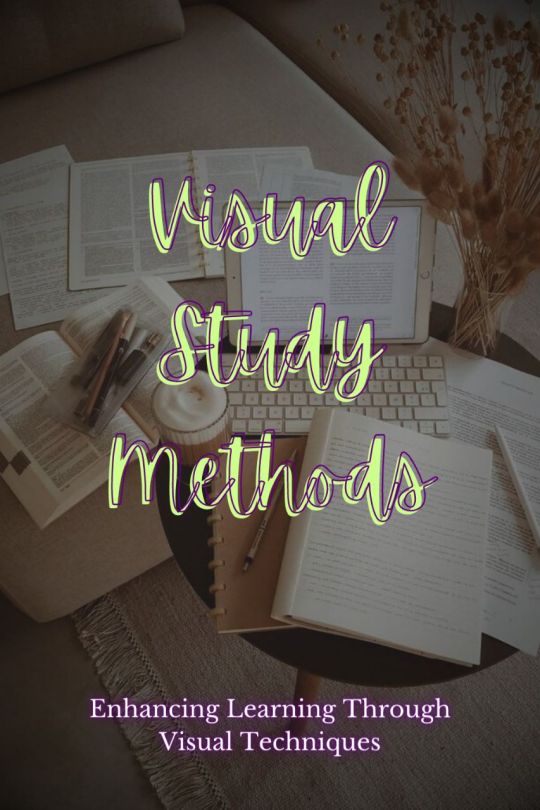
#blog post#blogger#lifestyle blog#new blog#study blog#that girl#trending#upscaspirants#indian studyblr#study tips#tips and tricks#learning styles#stay motivated#study motivation#student life#study#study aesthetic#study hard#study inspiration#study notes#upscpreparation#upsc#upscmotivation#upsccurrentaffairs#upscnotes#uniblr#university
4 notes
·
View notes